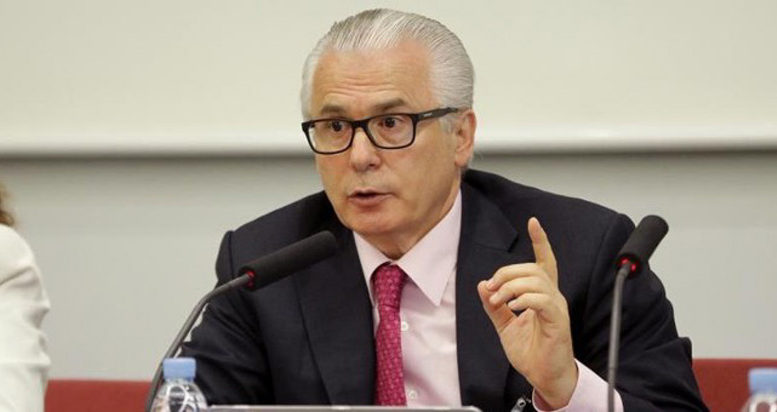• Ex-judge, human-rights lawyer says Spain’s courts hostile to Franco victims
• Garzón says Supreme Court part of efforts to silence dictatorship’s victims
Spanish attorney, former judge and human-rights activist Baltasar Garzón has charged the Spanish court system and particularly the country’s Supreme Court with intentionally ostracizing and attempting to silence the victims of human rights abuses and extrajudicial killings committed by Nationalist forces during the Spanish Civil War and under the dictatorship of Gen. Francisco Franco that lasted from 1939 until Franco’s death in 1975.
In a presentation made over the weekend on Human Rights and Rights of Victims of Crimes against Humanity, part of a cycle of talks on Historical Memory and Human Rights during the annual public summer courses presented by the Universidad Complutense de Madrid, Garzón said that Spain’s justice system had never done anything to help the victims of Franco-era abuses nor their families and noted there had not been “one single ruling in their favor.” On the contrary, Garzón said that in case after case, the victims and their families are themselves singled out for critism and denied full access to justice “because they create discomfort, they’re better kept silent … the contempt shown for them is constant.”
Perhaps most famous for his pursuit of the late-Chilean dictator Augusto Pinochet on international Crimes Against Humanity charges, Garzón has filed a legal claim to exhume Franco’s corpse from the Valley of the Fallen monument outside Madrid, where the former dictator is buried along with tens of thousands of soldiers from both sides in the Civil War, as well as many victims of rights abuses committed during the war and under his regime. Garzón said that only removal of Franco’s body from the Valley of the Fallen would provide a dignified final resting place for the remains of victims of Franco-era abuses interred there and said that if Spain’s justice system will not hear the case, he is prepared to take the lawsuit to the European Court of Human Rights.
► Read More in Spanish at Público and El Diario …


